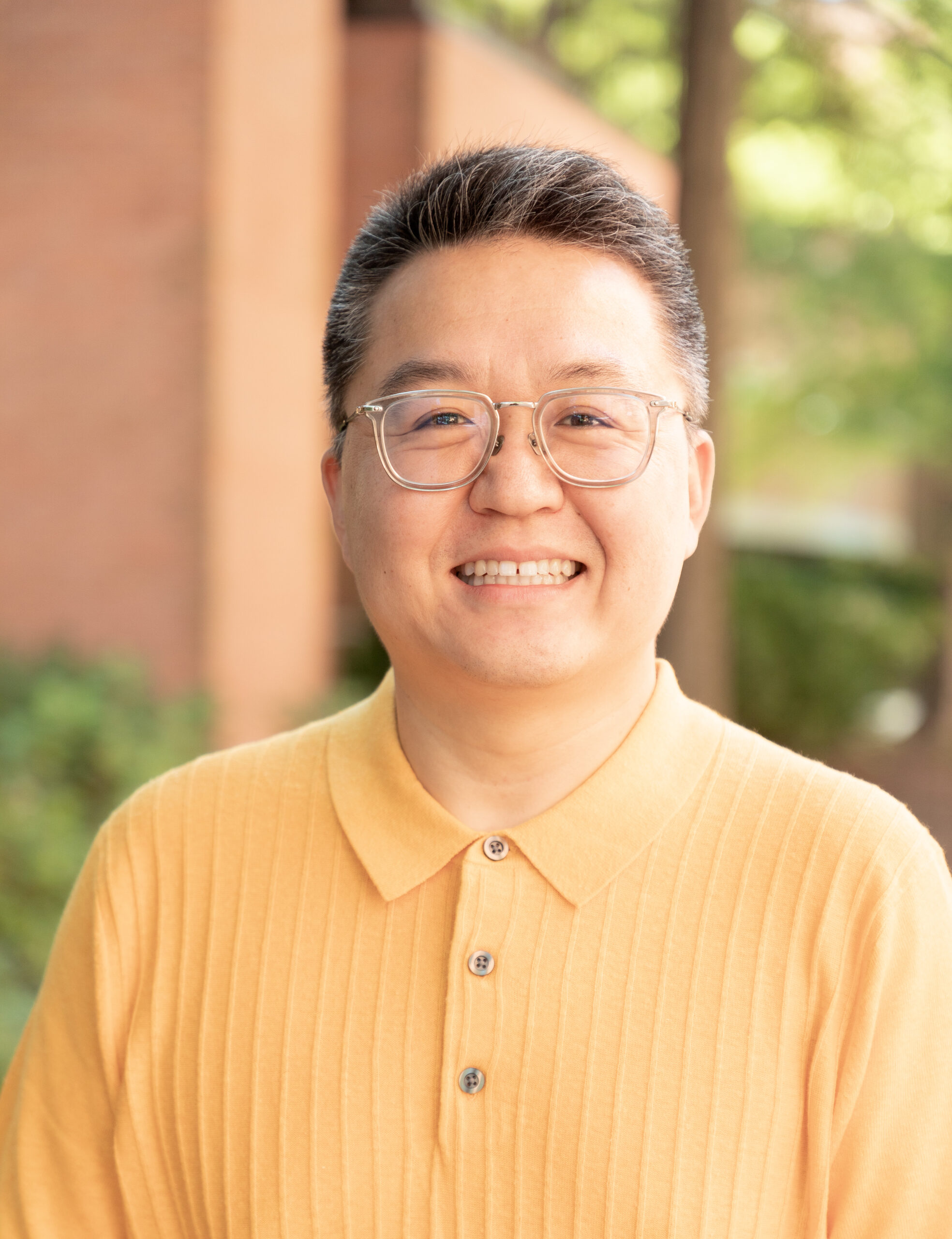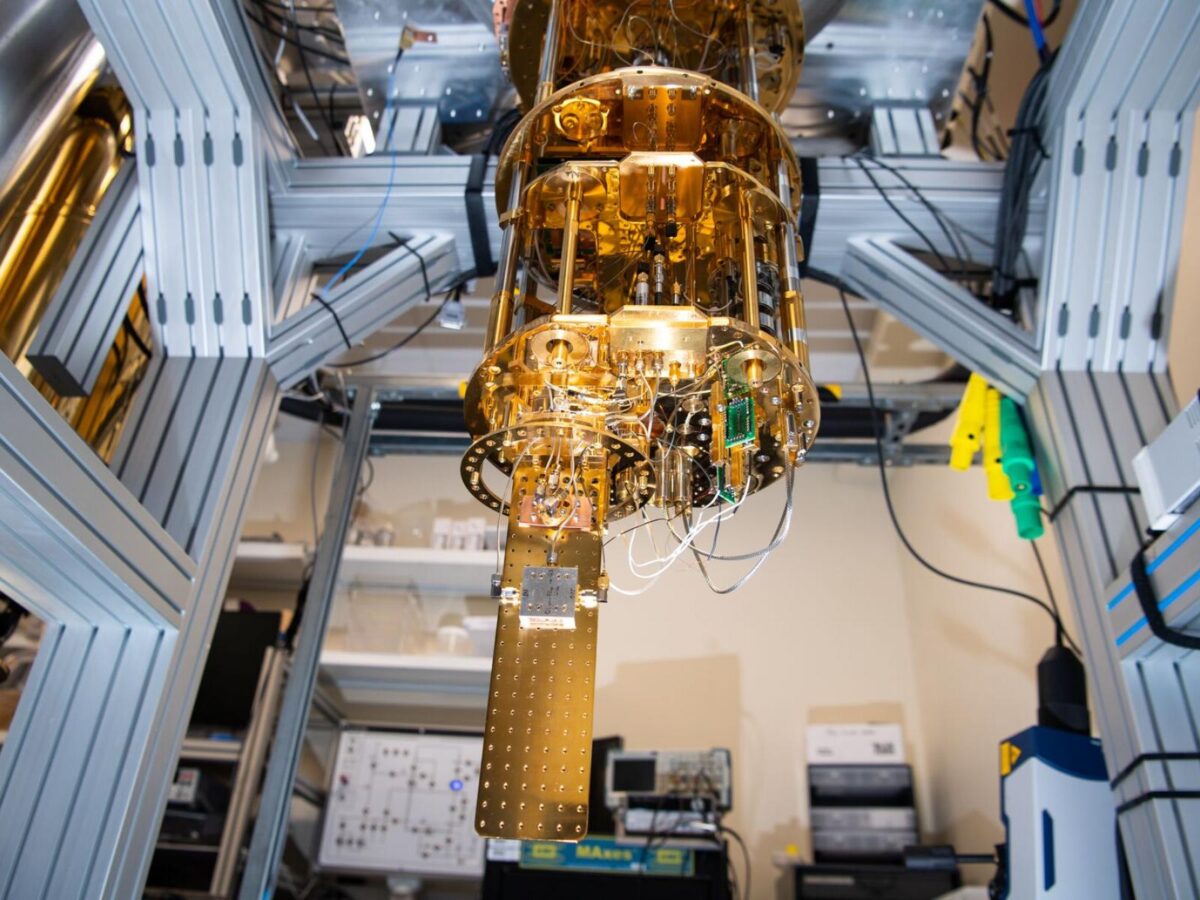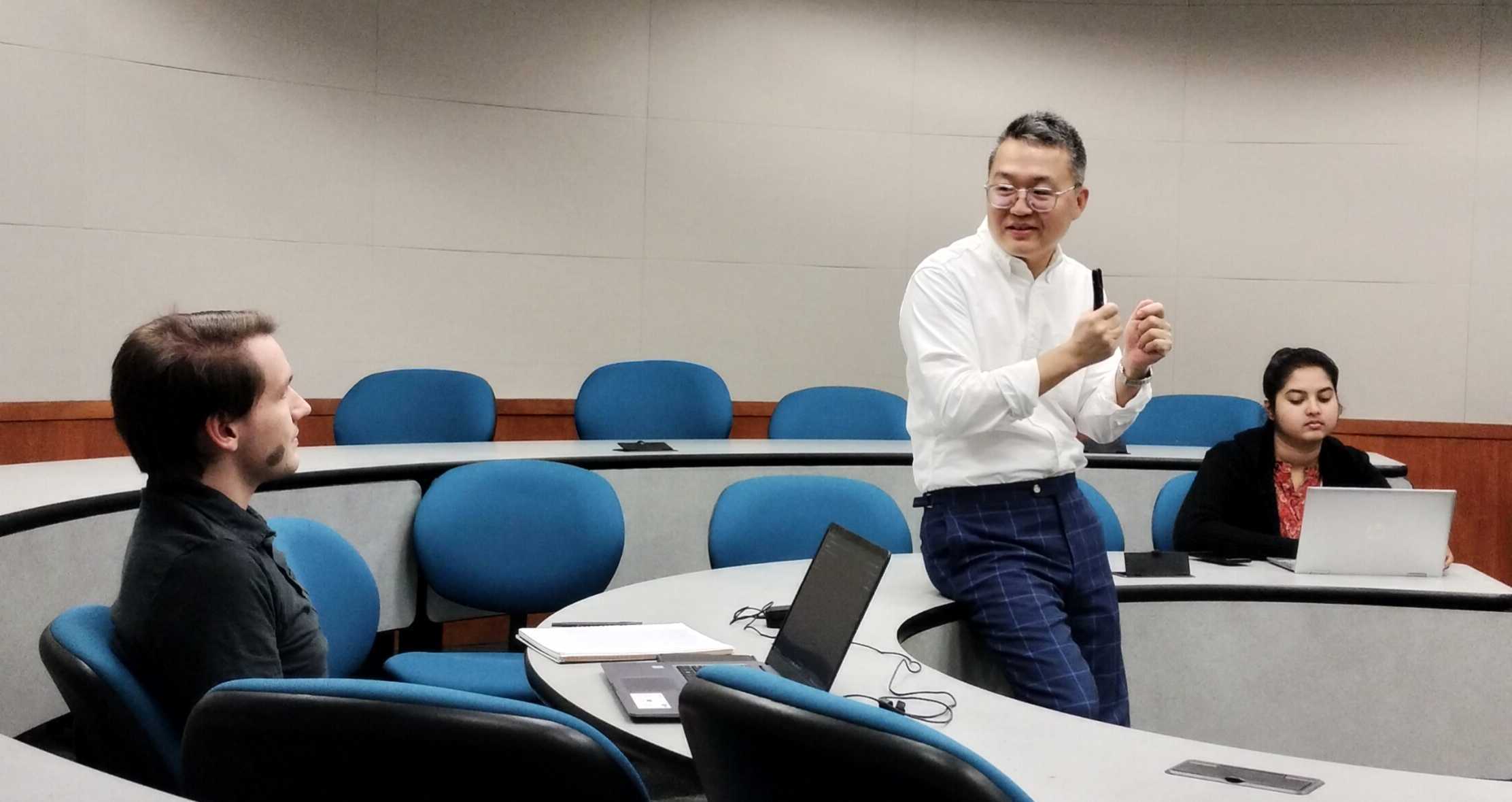In the early 20th century, as physicists explored the tiny world of atoms, they noticed some perplexing things: Energy transferred only in chunks; particles that also acted like waves; mysterious links between physically separate systems. Their observations and theories marked the start of the first quantum revolution, which rocked the philosophical world of scientists (Albert Einstein was famously disturbed by some of its implications), but ultimately helped birth the technology of today by enabling the development of physical devices such as computer chips and lasers.

Many scientists believe we are now on the cusp of a second quantum revolution, as quantum concepts are poised to transform the world of information science and technology too. The new revolution offers the promise, among other things, of a new type of computer called a quantum computer. Quantum computers could quickly solve some problems that are extremely difficult for traditional machines—they might also unleash some chaos we’ll have to find ways to prevent.
Lei Zhang, an assistant professor in the department of information systems, is working hard to prepare students for this quantum information future. In 2023 and 2024, with support from a Hrabowski Innovation Fund Grant, he developed new learning modules on quantum information concepts and integrated them into existing graduate and undergraduate courses in information systems.
Based partly on the success of that pilot project, Zhang recently received funding from the National Science Foundation to develop a 14-week summer program in quantum information science and technology. The program, which will launch in the summer of 2025, will be open to students from UMBC and nearby Montgomery College.
“Quantum computing is the next industrial revolution, and there will be an urgent need for skilled professionals in quantum information science and technology,” says Zhang. “This project aims to equip students with the skills and networks to meet that need and advance their careers.”
Quantum’s encryption-breaking challenge
The quantum information revolution is already smashing into our everyday world in the area of internet security. Most internet traffic is kept safe from prying eyes using a technique that works well against hackers using traditional computers but could be broken by a sophisticated enough quantum computer. No quantum computer has reached that point yet, but scientists are making steady progress in that direction, and experts are worried enough to start mandating security changes.
In 2022, the White House released a National Security Memorandum coordinating the actions of various federal agencies in a move toward quantum-resistant forms of encryption for their computer systems.
“The government will be one of the leaders in the change, but the whole private sector will need to follow,” Zhang says. “Everyone will need to update their systems.”
Zhang is focusing the summer program on this challenge. Students will learn about quantum computers and how they could break traditional encryption, and will also learn about new security algorithms, called post-quantum encryption algorithms, that are not as vulnerable to quantum attacks.
““Quantum computing is the next industrial revolution, and there will be an urgent need for skilled professionals in quantum information science and technology. This project aims to equip students with the skills and networks to meet that need and advance their careers.”
After six weeks of active and immersive learning activities, the students will engage in eight-week-long internships at local tech companies or in Zhang’s UMBC lab, where they will put their newfound knowledge and skills to use. At the completion of the summer program, the students will earn a MicroBachelors certificate from the online education company edX.
Partnerships advance outreach and teaching
Zhang is partnering with individuals and programs across UMBC to make his summer program successful. Zhang’s main collaborator on the project, assistant information systems professor Karen Chen, specializes in the study of how technology can improve learning. The team also includes information systems faculty Aryya Gangopadhyay, Michael Brown, and C. Augusto Casas.
Zhang is partnering with UMBC’s Center for Women in Technology, UMBC’s Cybersecurity Institute, and Montgomery College to recruit a diverse range of students for the summer program.
The project will be guided by the expertise of local leaders from government and private industry and its effectiveness will be evaluated by UMBC’s Chris Rakes, a professor of mathematics education.

Going forward, Zhang plans to continue scaling up his quantum education efforts. The coursework from the summer program will be made freely available for other educational institutions to use. It could also be incorporated into programs for adult learners.
In collaboration with the National Institute of Standards and Technology, headquartered in Gaithersburg, Maryland, Zhang also plans to use knowledge generated from the summer program to organize professional development workshops for instructors in four-year and community colleges.
The impact of Zhang’s efforts can already be seen on the individual level. Khushdeep Kaur, a master’s student in information systems, first heard about quantum computing from Zhang. “I felt amazed and eager to learn more about the technology,” she says. She is now part of Zhang’s research group, studying quantum computing topics.
Dongchan Kim, a senior majoring in information systems, also joined the lab after taking one of Zhang’s classes in spring 2024.
“I really enjoyed learning about technology that could become the ‘next big thing,’” he says. “Like AI, I think quantum computing has the power to transform industries. I look forward to contributing to its development in the future.”
Tags: COEIT, CWIT, Cybersecurity, IS

